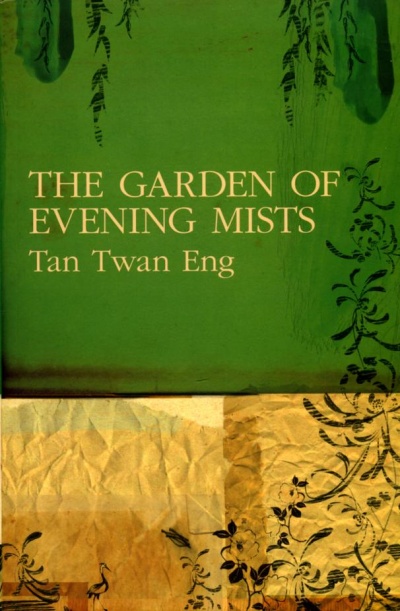
“From what you’ve been telling me, it’s just about aesthetics, isn’t it? The garden I mean?”
“Of course not. The garden has to reach inside you. It should change your heart, sadden it uplift it. It has to make you appreciate the impermanence of everything in life,” I say. “That point in time just as the last leaf is about to drop, as the remaining petal is about to fall; that moment captures everything beautiful and sorrowful about life. Mono no aware, the Japanese call it.”
This book is a journey of discovery, both for the main character and the reader. The author takes us to a rather exotic location – Malaysia, or more exactly Malaya, as it was called during before its independence. The historic period depicted in the novel encompasses turbulent times after the Second World War and the repercussions of the Japanese invasion into Malaya and Singapore.
The main character of the novel is Yun Ling Teoh, a former judge and also a former prisoner of Japanese war camp, its only survivor. She is diagnosed with an illness that would gradually make her incapable of understanding words or keep any memories. Thus she decides to put in writing the story of her life of how she came to inherit Yugiri, the garden of evening mists. The garden created according to Japanese traditions with her own hands.
There are several themes in the novel. One of them is memory. What do we remember about our life? What do we want to remember and what would we rather forget? Are the horrors we lived through better erased from our memory or do they become a part of our personality with or without our consent?
Another theme concerns the war, several different wars to be exact, from the past and the present. The author brings forth characters from both sides of the conflict, humanizing the war and its participants be it soldiers, commanders or victims of the concentration camps.
The theme that encompasses the lives of all the characters is the preservation for national identity. Malaya is shown as a multinational country. There are native aborigines who live in tribes far from the civilization. Magnus Pretorius, who comes from South Africa, participated in war against the British, but makes his fortune by having a tea plantation. He is also married to a woman of Malaysian-Chinese decent. Yun Ling Teoh herself is Chinese, but her family is called Strait Chinese, since they live in Malaya, thus being neither Chinese nor Malaysian. Despite various nationalities of the characters, the national stereotypes still hold, especially for the Japanese, who are called Japs with distain and contempt, no matter who those people actually are or what they did in the war.
The main theme, where all the previous ones connect, is the Japanese one, personified in Nakamura Aritomo, the former gardener of Japanese Emperor. Yun Ling’s relationship with him comprises the main part of the novel. It actually starts before they even meet in person, while Yun Ling and her sister, Yun Hong, visit Japan before the war and have a tour of gardens designed by Aritomo.
The reason why Yun Ling agrees to even talk to a Japanese is to design a garden for her sister who perished in the concentration camp. Through observing Aritomo’s lifestyle, being his apprentice in gardening, Yun Ling, as does the reader, discovers the beauty and finesse of Japanese culture with its philosophy, ink drawings, woodblock prints, archery, artistic tattooing and, of course, the art of gardening.
The mist is ever present in the novel as a weather condition and as a metaphor, covering the garden and the characters in mystery they do not shed even in the end.
Despite my wordy recommendation, I will never be able to relate to the perfection of this novel. The author brings to the reader an extremely detailed recounter of lives of individuals with multilayered personalities. The reader is given an opportunity to peel those layers away one by one and still remain in the suspense as to characters’ motivation. It would be ungrateful of me not to mention the vivid and poetic descriptions of nature be it the Japanese gardens or Malaysian jungle.
This novel is a real gem as for the lover of Japanese culture or the one who wants to discover it and the intricate world of the Southeast Asia.
***
Canongate, 2012
Check from the e-catalogue ESTER
Olga Ivaškevitš
Väike-Õismäe branch library

